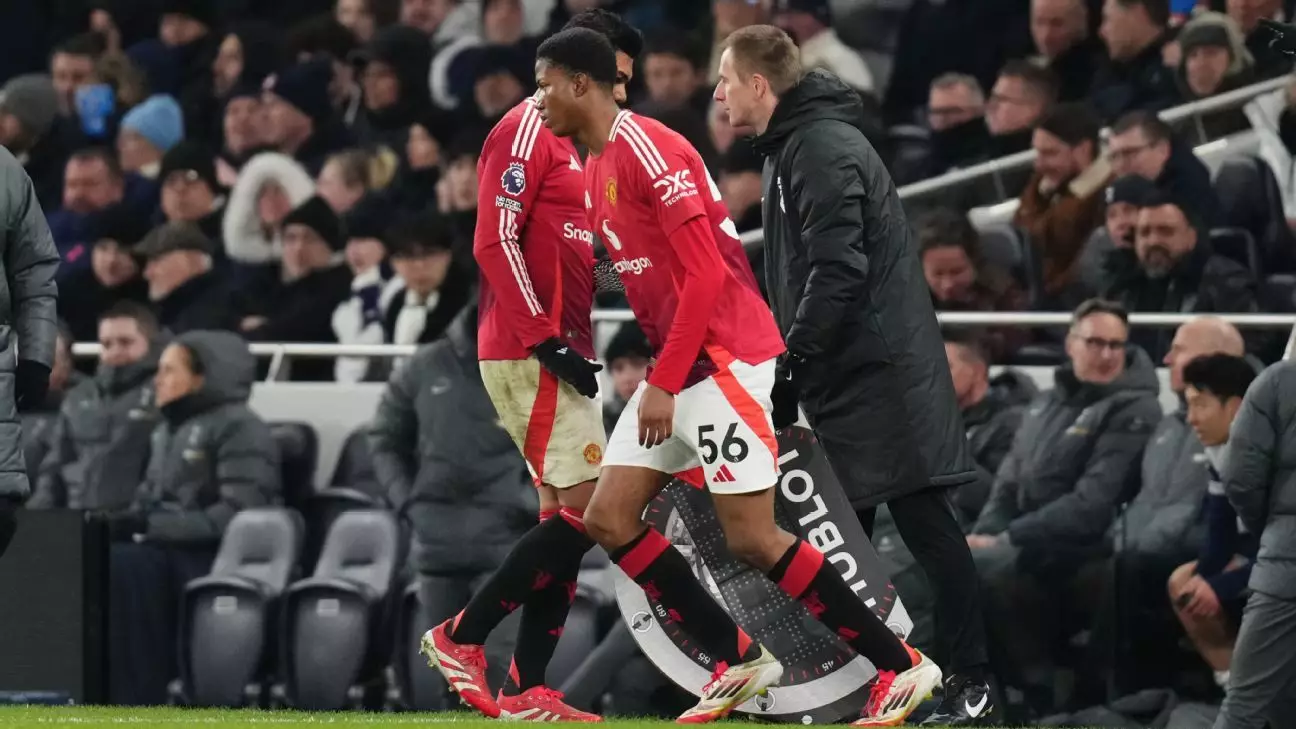The fortunes of Manchester United have been in a continuous spiral of disappointment, a stark contrast to the club’s former glory days. Once upon a time, United’s experiments with young talent seemed serendipitous, leading to memorable moments that became part of Premier League folklore. However, the recent tumult within the club exposes not only ongoing crises but also questions about youth development and managerial decisions.
Moments of Glory to Contemporary Struggles
The tales of Federico Macheda’s dramatic late winner against Aston Villa in 2009 or Danny Welbeck’s breakout performance against Stoke City have become ingrained in United’s rich lore. These instances not only elevated individual players but also galvanized a generation of supporters who felt that the club embodied resilience and brilliance. Fast forward to the present, where, instead of inspiring debuts, we witness an alarming reliance on untested teenagers, which evokes feelings of desperation rather than excitement.
During a recent match against Tottenham, Manchester United’s manager, Ruben Amorim, found himself in a peculiar situation. Faced with a crippling injury list that reduced his squad to minimal options, he opted to substitute 17-year-old Chido Obi-Martin into the fray. A player who had garnered significant praise in youth circles, Obi-Martin’s actual debut was agonizingly underwhelming; he failed to touch the ball, which serves as an emblem of the dire circumstances plaguing the club.
Amorim’s decision to throw Obi-Martin into the game at such a critical juncture raises significant questions. It highlights a troubling pattern where young players are unceremoniously thrust into high-pressure situations without adequate preparation. In a club with an illustrious history of nurturing talent, the misguided flick of a coin now substitutes for tactical shrewdness. Should Amorim have provided Obi-Martin with a proper debut by allotting more time on the pitch, or was he merely seeking a desperate gamble to ignite a lackluster performance?
Victories are not simply measured in the scoreline but also in how a manager cultivates confidence in an inexperienced squad. As injuries mount within United’s ranks, and with some seasoned players notably absent, it appears the approach to youth integration has transformed from a celebrated philosophy to a forced necessity. Seven of the teenagers on United’s bench on that dismal Sunday were born after the Glazer family’s takeover in 2005, illustrating that perhaps the club has drifted too far from its core traditions of patient development.
The recent loss to Tottenham is reflective of a wider malaise that has engulfed the club. United now finds itself burdened by an alarming statistic: twelve defeats from twenty-five Premier League games—the worst rate since the disastrous season of 1973-74. Despite not facing immediate relegation risks, a glaring question looms: Is United sleepwalking through the season without a clearer vision of recovery?
While Amorim has urged everyone to “stop focusing on the big picture,” the sheer gravity of the club’s circumstances makes it impossible to ignore. Struggling in the 15th position in the league, the call for solace appears futile as the club grapples with performances that lack both character and cohesion.
Meanwhile, Tottenham’s victory offered a much-needed ray of hope for their beleaguered manager, Ange Postecoglou. After enduring a dismal stretch of form—eight losses in eleven games—Postecoglou’s tactical flexibility and player recovery signal the potential for a turnaround. Although Spurs fans remain discontented, this win provided an indispensable morale boost, suggesting that once injured players return, the momentum could shift positively.
As both clubs navigate their divergent paths, the long-lasting implications of their respective struggles extend beyond the pitch. Discontent may simmer beneath the surface for Tottenham’s hierarchy, yet results like this can provide a temporary reprieve. Conversely, United’s history of resilient youth may now be overshadowed by a stark reality of improvised tactics and insufficient player readiness.
The current narrative surrounding Manchester United urgently requires re-assessment. Exciting young prospects should not merely represent a stopgap or a plea for scrappy victories; they must grow under a system that promotes longevity. If tactical foresight and confidence in youth development are not re-established, the club risks losing its identity, perhaps sending it spiraling deeper into disarray.
In closing, there must be a collective acknowledgment that United’s storied past cannot indefinitely exist alongside their current reluctance to adapt. Both fans and ownership must engage in a committed search for real solutions, ensuring the club can regain its rightful place and rediscover the magic that once seemed everlasting.

